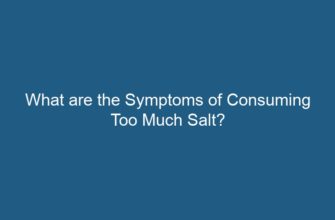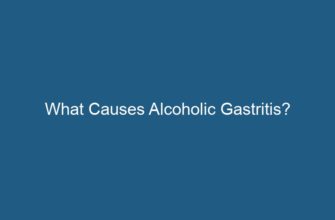Absolute neutrophil count (ANC) is a measure of the total number of neutrophils in the blood. Neutrophils are a type of white blood cell that plays a crucial role in the immune response against bacterial infections. A high count of absolute neutrophils, also known as neutrophilia, can indicate various underlying health conditions. In this article, we will explore the possible causes, symptoms, and treatment options associated with a high count of absolute neutrophils.
- 1. Understanding Neutrophils
- 1.1 Neutrophil Function
- 1.2 Normal Neutrophil Range
- 2. Causes of High Absolute Neutrophil Count
- 2.1 Infection
- 2.2 Inflammatory Conditions
- 2.3 Medications and Drugs
- 2.4 Stress and Exercise
- 3. Symptoms of High Absolute Neutrophil Count
- 3.1 Signs of Infection
- 3.2 Inflammatory Symptoms
- 3.3 Other Associated Symptoms
- 4. Diagnosis and Treatment
- 4.1 Diagnostic Tests
- 4.2 Treatment Options
- 5. Conclusion
1. Understanding Neutrophils
Before diving into the implications of a high count of absolute neutrophils, it is essential to understand the role of neutrophils in the body’s defense mechanism. Neutrophils are the most abundant type of white blood cells and are primarily responsible for fighting off bacterial infections. They are part of the innate immune system and play a critical role in the early stages of an immune response.
1.1 Neutrophil Function
Neutrophils are highly specialized cells equipped with various mechanisms to combat bacterial invaders. Their primary function is to engulf and destroy bacteria through a process called phagocytosis. Neutrophils also release antimicrobial proteins and toxic substances to kill bacteria. Additionally, they contribute to the inflammatory response by releasing inflammatory mediators.
1.2 Normal Neutrophil Range
Absolute neutrophil count is usually measured as part of a complete blood count (CBC) test. The normal range of absolute neutrophil count can vary slightly depending on factors such as age and overall health. In general, a healthy individual will have an ANC between 2,500 and 6,000 neutrophils per microliter of blood.
2. Causes of High Absolute Neutrophil Count
A high count of absolute neutrophils can be attributed to various factors, including underlying health conditions and external stimuli. Understanding the potential causes is crucial in determining the appropriate course of action for diagnosis and treatment.
2.1 Infection
One of the most common reasons for a high count of absolute neutrophils is an ongoing bacterial infection. When the body detects an infection, it releases chemicals that stimulate the production and release of neutrophils from the bone marrow. This leads to an increase in the absolute neutrophil count as the body tries to fight off the invading bacteria.
2.2 Inflammatory Conditions
Chronic inflammatory conditions such as rheumatoid arthritis, inflammatory bowel disease, and systemic lupus erythematosus can also cause an elevation in the absolute neutrophil count. The chronic inflammation triggers the release of various cytokines and growth factors, stimulating the production of neutrophils.
2.3 Medications and Drugs
Certain medications and drugs can induce neutrophilia as a side effect. For example, corticosteroids, which are commonly prescribed for their anti-inflammatory properties, can cause an increase in the absolute neutrophil count. Additionally, substances like lithium and epinephrine have been associated with neutrophilia.
2.4 Stress and Exercise
Prolonged physical or emotional stress, as well as intense exercise, can temporarily elevate the absolute neutrophil count. This response is part of the body’s natural defense mechanism to prepare for potential injuries or infections. However, the increase in neutrophils is usually transient and returns to normal levels once the stressor is resolved.
3. Symptoms of High Absolute Neutrophil Count
While a high count of absolute neutrophils itself does not typically cause noticeable symptoms, it is often associated with the underlying condition responsible for the increase. The symptoms experienced may vary depending on the specific cause and individual factors.
3.1 Signs of Infection
If the elevated absolute neutrophil count is due to an ongoing bacterial infection, symptoms such as fever, chills, fatigue, and localized inflammation may be present. The severity and location of symptoms will depend on the site of infection.
3.2 Inflammatory Symptoms
In cases where chronic inflammation is the cause of neutrophilia, symptoms such as joint pain, swelling, stiffness, and skin rashes may be observed. These symptoms are often indicative of the underlying inflammatory condition.
3.3 Other Associated Symptoms
Depending on the individual and underlying cause, other symptoms such as weight loss, night sweats, and general malaise may be present. It is important to consider these symptoms in conjunction with the high absolute neutrophil count for accurate diagnosis.
4. Diagnosis and Treatment
When a high count of absolute neutrophils is detected, further diagnostic tests are necessary to determine the underlying cause. The appropriate treatment plan will depend on the specific condition identified.
4.1 Diagnostic Tests
To diagnose the underlying cause of neutrophilia, healthcare professionals may perform additional tests, including:
- Complete blood count (CBC): This test provides a detailed analysis of various blood components, including red and white blood cells.
- Blood cultures: These tests help identify the presence of bacteria or fungi in the blood, indicating an ongoing infection.
- Inflammatory markers: Measuring levels of markers such as C-reactive protein (CRP) and erythrocyte sedimentation rate (ESR) can indicate the presence of inflammation.
- Imaging studies: Depending on the suspected underlying cause, imaging studies such as X-rays, ultrasounds, or magnetic resonance imaging (MRI) may be performed.
4.2 Treatment Options
The treatment for high absolute neutrophil count focuses on addressing the underlying cause. This may involve:
- Antibiotics: In the case of bacterial infections, antibiotics are prescribed to target and eliminate the pathogens responsible.
- Anti-inflammatory medications: For conditions involving chronic inflammation, medications such as nonsteroidal anti-inflammatory drugs (NSAIDs) or disease-modifying antirheumatic drugs (DMARDs) may be prescribed.
- Discontinuing or adjusting medications: If medications are identified as the cause of neutrophilia, alternative options may be explored or dosages adjusted.
- Managing stress: For neutrophilia induced by stress or intense exercise, implementing stress management techniques and gradually reducing physical exertion can help normalize neutrophil levels.
5. Conclusion
A high count of absolute neutrophils can serve as an important indicator of various underlying health conditions, including infections, inflammatory disorders, medication side effects, and stress-related responses. Recognizing the potential causes and understanding the associated symptoms is crucial in diagnosing and treating the underlying condition effectively. By addressing the root cause, healthcare professionals can work towards restoring the balance of neutrophil levels and promoting overall health and well-being.










